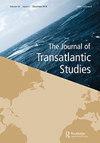nicolas guillen和葡萄牙黑人诗歌(1953)
Q1 Arts and Humanities
引用次数: 0
摘要
1953年出版的诗歌笔记本Poesia negra de express本文章由计算机程序翻译,如有差异,请以英文原文为准。
Nicolás Guillén and Poesia Negra de Expressão Portuguesa (1953)
The 1953 poetry notebook Poesia negra de expressão portuguesa [Black Poetry of Portuguese Expression] was first work that brought together negritude poetry from across the Lusophone African world. Edited by Angolan intellectual Mário Pinto de Andrade and Sao Tomean poet Francisco Tenreiro, the short collection declares itself an anti-colonial intervention into the negritude movements underway in the Francophone world since the 1930s. Little has been made, however, of the notebook’s dedication to Cuban poet Nicolás Guillén or the inclusion of Guillén’s poem “Son Número 6” [Son Number 6] in the collection. This article argues that the juxtaposition of Guillén’s “Son No. 6” with the Lusophone poems consolidates an alternative transatlanticism that emphasizes Guillén as a black poet, rather than themes of racial and cultural mixing, and thus shifts the circuits of collaboration away from francophone negritude's colony-metropole axis to the South. Poetic techniques such as call-and-response and the socially-embedded, metonymic construction of blackness shared among Guillén and Lusophone poets Agostinho Neto, Noémia de Sousa, and António Jacinto show how the notebook establishes the origins of both negritude poetry and negritude identity in the trans-Atlantic poetic conversation itself.
求助全文
通过发布文献求助,成功后即可免费获取论文全文。
去求助
来源期刊

Journal of Transatlantic Studies
Arts and Humanities-History
CiteScore
0.90
自引率
0.00%
发文量
15
期刊介绍:
The Journal of Transatlantic Studies is the official journal of the Transatlantic Studies Association. It began publication in 2003. The focus is on the transatlantic region broadly defined to include the Americas and the Caribbean in the west and Europe extending to Russia the Middle East and Africa in the east.The Journal explores and provides multi-disciplinary analysis of this vital region of the world through engagement principally with: - History - Literature - IR and Security Studies - International Law and Organisation - Culture and Race - Slavery and Migration - Film - Economics and Business Studies - Planning and the Environment It is published quarterly and accepts proposals for themed issues as well as individual articles between 5-12,000 words in length. It also has a short book review section. Two peer reviewers evaluate all submissions and any manuscript that divides opinion is then submitted to a third peer reviewer for a final decision. The JTS aims to provide decisions on submissions within 12 weeks.
 求助内容:
求助内容: 应助结果提醒方式:
应助结果提醒方式:


